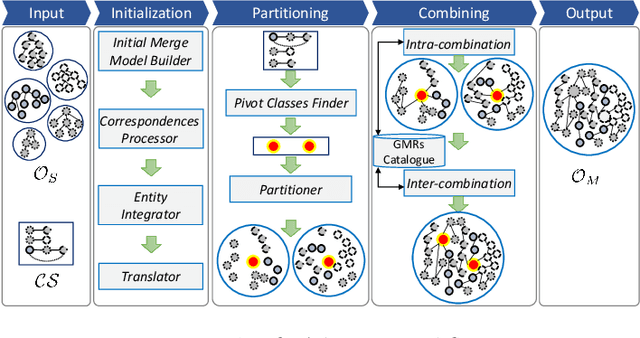Samira Babalou
Reproducible Domain-Specific Knowledge Graphs in the Life Sciences: a Systematic Literature Review
Sep 15, 2023Abstract:Knowledge graphs (KGs) are widely used for representing and organizing structured knowledge in diverse domains. However, the creation and upkeep of KGs pose substantial challenges. Developing a KG demands extensive expertise in data modeling, ontology design, and data curation. Furthermore, KGs are dynamic, requiring continuous updates and quality control to ensure accuracy and relevance. These intricacies contribute to the considerable effort required for their development and maintenance. One critical dimension of KGs that warrants attention is reproducibility. The ability to replicate and validate KGs is fundamental for ensuring the trustworthiness and sustainability of the knowledge they represent. Reproducible KGs not only support open science by allowing others to build upon existing knowledge but also enhance transparency and reliability in disseminating information. Despite the growing number of domain-specific KGs, a comprehensive analysis concerning their reproducibility has been lacking. This paper addresses this gap by offering a general overview of domain-specific KGs and comparing them based on various reproducibility criteria. Our study over 19 different domains shows only eight out of 250 domain-specific KGs (3.2%) provide publicly available source code. Among these, only one system could successfully pass our reproducibility assessment (14.3%). These findings highlight the challenges and gaps in achieving reproducibility across domain-specific KGs. Our finding that only 0.4% of published domain-specific KGs are reproducible shows a clear need for further research and a shift in cultural practices.
Towards Building Knowledge by Merging Multiple Ontologies with CoMerger: A Partitioning-based Approach
May 06, 2020



Abstract:Ontologies are the prime way of organizing data in the Semantic Web. Often, it is necessary to combine several, independently developed ontologies to obtain a knowledge graph fully representing a domain of interest. The complementarity of existing ontologies can be leveraged by merging them. Existing approaches for ontology merging mostly implement a binary merge. However, with the growing number and size of relevant ontologies across domains, scalability becomes a central challenge. A multi-ontology merging technique offers a potential solution to this problem. We present CoMerger, a scalable multiple ontologies merging method. For efficient processing, rather than successively merging complete ontologies pairwise, we group related concepts across ontologies into partitions and merge first within and then across those partitions. The experimental results on well-known datasets confirm the feasibility of our approach and demonstrate its superiority over binary strategies. A prototypical implementation is freely accessible through a live web portal.
 Add to Chrome
Add to Chrome Add to Firefox
Add to Firefox Add to Edge
Add to Edge